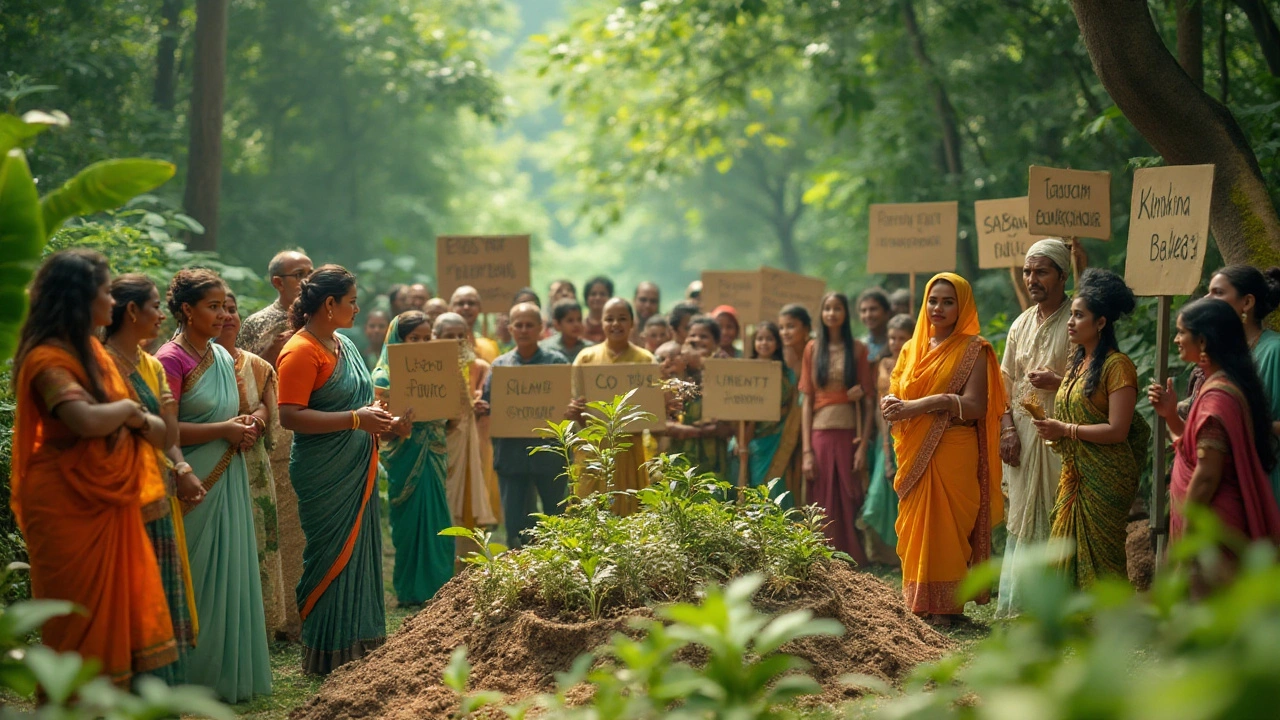Environmental Protection: What You Can Do with Varanasi Diocese
Ever wonder how a church community can actually make the planet greener? At Varanasi Diocese Community Network we blend faith with action, so caring for creation isn’t just a slogan—it’s a daily habit. Below you’ll find easy ways to join local clean‑up drives, support proven environmental groups, and bring simple sustainability tricks into your home.
Volunteer Projects for a Greener Varanasi
Our volunteers are the real engine behind every tree‑planting day, river‑bank cleanup, and waste‑sorting workshop. If you have a Saturday morning to spare, sign up for a litter‑pick in the Ganges fringe. We provide gloves, bags, and a quick safety briefing, then you get to see the impact of a handful of hands clearing debris that chokes the water.
Another favorite is the community garden program. Small plots around local schools turn into food‑rich spaces that teach kids where meals come from while reducing the need for store‑bought produce. You don’t need a green thumb—experienced gardeners show you the basics of soil prep, composting, and watering.
Got a talent for teaching? Lead a mini‑workshop on recycling basics for your neighborhood. A 30‑minute session covering what can go in the blue bin versus the brown bin clears up a lot of confusion and cuts down landfill waste. The Diocese provides printed guides, so you’re not starting from scratch.
Supporting Trusted Eco‑Organizations
If hands‑on work isn’t your style, channel your generosity toward vetted environmental charities. Our latest spotlight, “Best Environmental Organizations to Support,” lists groups that actually move the needle on climate action, wildlife protection, and clean water projects. Donating a modest amount to any of these organizations amplifies the impact of your contribution.
One highlighted group focuses on reforestation in the Uttarakhand hills—a region hit hard by deforestation. Every dollar plants a sapling, and the organization tracks growth with satellite images you can watch online. Another partner runs solar‑panel installations for rural schools, slashing electricity bills and teaching students about renewable energy.
Want to combine giving with learning? Attend a quarterly “Eco‑Talk” at the Diocese hall. Guest speakers from these charities break down their work in plain language, answer your questions, and often hand out volunteer kits you can take home.
Remember, protecting the environment isn’t a one‑time event. It’s a series of small actions that add up. Whether you’re sorting waste, planting a seedling, or donating to a proven cause, you’re joining a network that sees stewardship as a shared responsibility.
Ready to get started? Check the “Volunteer” section on our site for upcoming dates, or click the “Donate” button next to the organization you trust most. Together, we can keep Varanasi clean, green, and thriving for generations to come.

Environmental Management Groups: The Three Main Types Explained
- May, 26 2025
- 0
Ever wondered how people organize themselves to manage the environment? There are three main groups that handle this: government agencies, non-governmental organizations, and private sector companies. Each group has a different role, focus, and way of operating. Understanding these groups helps you see who does what for our planet. This article breaks down their roles, shares surprising facts, and gives tips for getting involved.

Understanding Environmentalist Groups: Their Role and Impact
- Jan, 13 2025
- 0
Environmentalist groups play a vital role in protecting natural habitats and advocating for sustainable practices. These organizations, often comprised of passionate activists, work towards solutions for pressing ecological issues facing our planet. Their initiatives can range from educational campaigns to grassroots activism and influencing policy changes. Understanding their purpose, methods, and impact is crucial for appreciating the significance of their contributions towards environmental and social well-being.
Categories
- Volunteering (40)
- Environment (38)
- Youth Programs (34)
- Charity Events (31)
- Homelessness (31)
- Community Outreach (30)
- Charitable Organizations (27)
- Community Support (18)
- Finance (14)
- Education (10)
Archives
- March 2026 (1)
- February 2026 (6)
- January 2026 (7)
- December 2025 (10)
- November 2025 (8)
- October 2025 (23)
- September 2025 (4)
- August 2025 (8)
- July 2025 (31)
- June 2025 (29)
- May 2025 (30)
- April 2025 (31)
- community outreach
- charity events
- after-school clubs
- community service
- charitable trust
- philanthropy
- volunteering
- homeless shelters
- environmental groups
- community engagement
- volunteer opportunities
- charitable giving
- estate planning
- mental health
- charity
- student engagement
- community help
- donations
- volunteer
- youth organizations